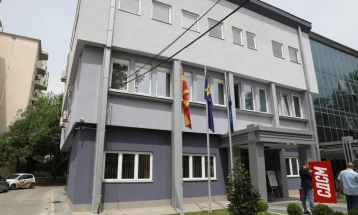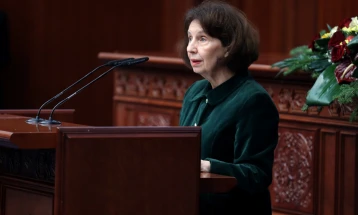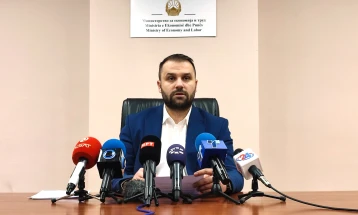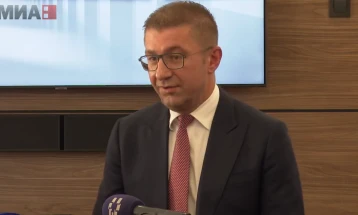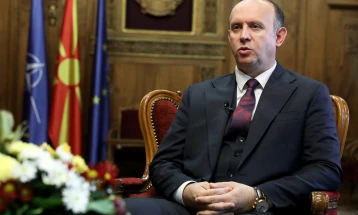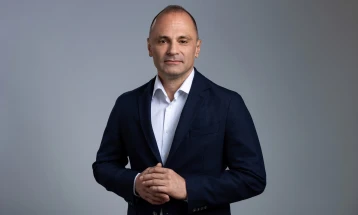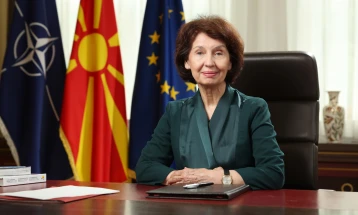UNICEF launches campaign to increase awareness about impact of trauma on children in contact with justice system
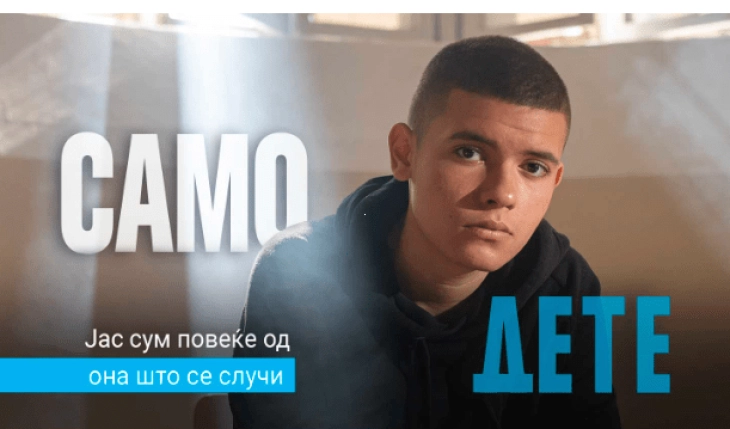
Skopje, 18 October 2022 (MIA) - With a message “I am more than what happened” UNICEF in partnership with the Ministry of Justice, Ministry of Interior and Ministry of Labour and Social Policy started a new campaign supported by the European Delegation to increased awareness about the impact of trauma on children in contact with the justice system.
The purpose of the campaign is to gain public understanding that, like any other child, a child in contact with the justice system carries hopes of a better future and when the society and the systems understand and respond to their trauma, children can regain the strength and confidence to face life's challenges, UNICEF said in a press release on Tuesday.
Children who break the law, children who are victims or witnesses of crime and violence experience trauma. Many of them still face enormous obstacles, including disabling cultural norms and attitudes, and a lack of knowledge among families and communities regarding their rights to protection and the availability of resources.
“When children come into conflict with the law, the system should enable the realization of their best interest and protect them from any form of threat to their freedoms and rights. It is essential for children to overcome fear and trauma and to prevent retraumatization and revictimization,” said the Minister of Justice Nikola Tupanceski.
“With the reforms to promote the rule of law, we are building a justice system for children, which will have the child at the center and its protection, upbringing and proper development - where prevention is primary. In this process, we listen to the voice of children, of young people, whose innovative approach is embedded in our work to improve access to justice for children,” he added.
“If we, as a society, offer children who have gone through difficult situations an environment of support, attachment, security, and love, we help children to restore their emotional, physical, and cognitive wellbeing. This way, as a society, we can avoid children entering the justice system in the first place which very often further traumatizes children,” said Patrizia DiGiovanni, UNICEF Representative. “Children need a justice system that supports healing, learning and rehabilitation, not punishment. The focus of the justice system should move from punishment to a restorative justice approach, using alternative measures, diversion and community support programmes to help children reintegrate into society.”
Recent UNICEF studies in North Macedonia show that the general public and professionals working in the child protection system understand the way trauma affects lives of children - 80% of the respondents believe that most children experience some form of trauma in their childhood, and 74% think that most children in conflict with the law have experienced severe trauma.
However, the public’s attitude towards using punitive approaches to correct a child’s behaviour is still a preferred approach and many have negative perceptions of children in contact with the law.
Furthermore, a large proportion of respondents believe that tougher punitive measures are necessary for children to think before committing a crime (74%) and to learn right from wrong (73%) and that children with serious behaviour problems must be punished to learn - 69%
Global evidence shows that punitive measures to correct a child’s behaviour can have negative life-time consequences. And punishment does not help the child recover from trauma. On the contrary, it can stigmatise the child, increase the sense of displacement and lower self-esteem. On the other hand, when police officers, social workers, prosecutors, judges and staff employed in institutions understand and respond to what the child has experienced, they can positively determine the path children take to recovery. Having that same understanding from community heightens even more, the path to recovery.
The campaign includes video testimonials based on true stories of children who experienced poverty, loss of parent, illness, lack of safe and loving family and - being left alone to cope with the difficult life situation – and came in the contact with the justice system, either because they committed offenses or because they were victims of neglect or violence. Four children and young people who were placed in correctional institutions or small group homes wrote blogs telling their life stories.
As part of the campaign, on 25th October the screening of the film “The wisdom of trauma “by Zaya and Mauricio Benazzo featuring dr. Gabor Mate in “Frosina” cinema will open discussion among child protection and justice for children’s experts on trauma and adverse childhood experiences and the role of the systems in supporting children.
The campaign is part of a broader two-year programme “Just(ice) children – EU for juvenile and child-friendly justice” funded by the delegation of European Union and co-funded by UNICEF to support the Government reform efforts to ensure the justice system protects the rights of all children who come in contact with the law, reads the press release.
